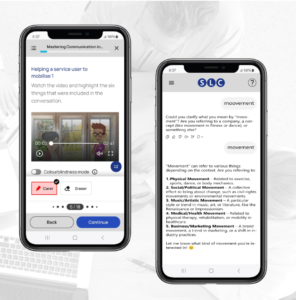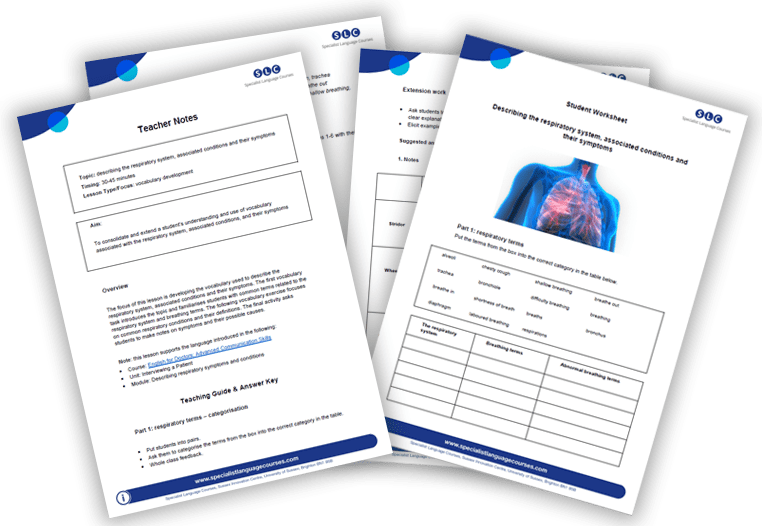
SLC win Ufi grant to develop AI language learning app for social carers
We’re delighted to have won a grant from Ufi VocTech Trust to develop an AI-driven technology solution that provides cheap phone-based language and communication skills

Get this right, and your rapport with your patient will be a powerful factor in building a successful therapeutic partnership. Get this wrong, and your relationship may never recover.
There are some occasions, when healthcare professionals have to give advice in a sensitive manner. Think of some of the times, when you have had to do this. What sorts of things were you discussing?
Perhaps:
Now, think about the language you might use in these situations. It is useful to have a ‘scale’ of language in mind, when you are giving advice sensitively. In order to be effective, you will be using several communication skills. Here are 3 very useful skills:
At times, you may be talking about subjects which you find uncomfortable, so it is important to pay attention to your own body language. Are you using gestures (e.g. crossing your arms in front of your chest) or negative body positions (e.g. leaning back or away from the other person)? Are you using judgemental phrases, e.g.
You’re going to have to make more of an effort. You need to pull yourself together now?
In order to be non-judgemental, it is often a good idea to acknowledge the difficulty the patient may have with their particular health issue, e.g.
I can see you are finding losing weight very challenging.
It looks like you are having a difficult time coming to terms with your mother’s death.
It is also a good idea to empathise with the patient, before giving any advice, e.g.
I imagine that it must seem almost impossible to tackle your drug issues.
I guess it must be overwhelming to deal with your weight problem.
Now, onto the giving of advice in a sensitive manner. You may find you are using phrases such as:
It would be a good idea to..
It would be helpful, if you could…
It would be useful to think about…..
Would you be willing to try….?
As you can see, these phrases are similar to the phrases used to make suggestions. In contrast, when giving advice, you might say:
You should….(reduce your fat intake, exercise more etc)
You need to…(keep an eye on your weekly alcohol intake)
In the case of sensitive advice, these phrases may appear too harsh at first. Of course, in situations where immediate lifestyle changes need to be made, strong advice may need to be given, e.g. evidence of dangerous drug habits or unsafe exposure to infections. In these cases, you may use phrases such as :
You must…
It is essential that you…
It is vital that you….
SLC’s ground-breaking online Medical English courses gives you the language you need to work, study and collaborate in an English-speaking environment.
Just click on the course and start your Medical English preparation!
In Specialist Language Courses we offer free lesson plans to teachers so they can have the best materials to teach their students about Medical English.
You can subscribe to our newsletter where you will receive monthly email with the latest materials that SLC offers for free.

We also offer the latest in online medical English resources and materials to transform your teaching programmes and accelerate your students’ learning.
Teachers and institutions use the courses in multiple ways – as digital coursebooks, as supplementary learning, and as part of a flipped classroom approach. We can advise you how to integrate the materials to meet your objectives.
Interested in using our courses? Click here:
Get updates and get the latest materials on Medical English, OET and IELTS

We’re delighted to have won a grant from Ufi VocTech Trust to develop an AI-driven technology solution that provides cheap phone-based language and communication skills

We’re delighted to announce a partnership with leading Medical English app, Doxa.
